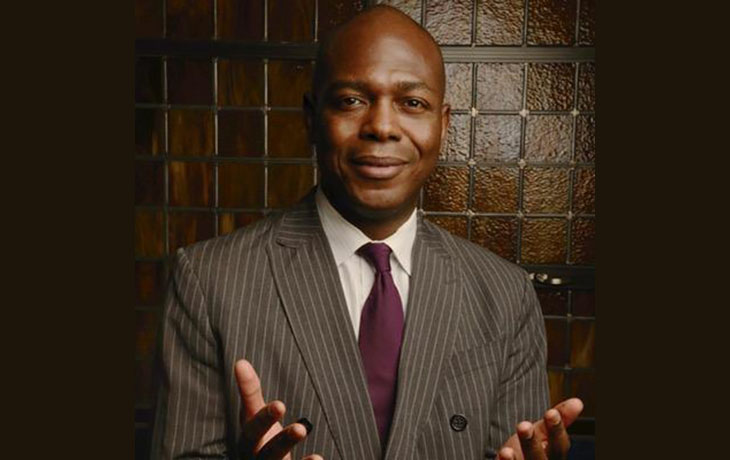The disgusting insults hurled toward Haitian immigrants keep coming. After Donald Trump and his MAGA running mate, JD Vance, spread vicious rumors about Haitian immigrants eating dogs and cats in Springfield, Ohio, leading to death threats in the community, a racist congressman has made the news for further spreading vile rumors about the immigrants.
Congressman Clay Higgins, R-La., recently tweeted, “These Haitians are wild. Eating pets, vudu, nastiest country in the western hemisphere, cults, slapstick gangsters.” In an extremely weak response, House Speaker Mike Johnson brushed off the comments as unfortunate and suggested that we just move on. The idea of rebuking the vile racism expressed by Higgins apparently never crossed the speaker’s mind.
These recent racist incidents call for a strong and forceful response, and Vice President Kamala Harris, the Democratic candidate for U.S. president, is poised to do just that. Since beginning her campaign, it’s clear that Harris is being extremely careful to not be known as “the female” or “the Black” candidate. However, Trump and his MAGA sycophants are determined to use race baiting as their primary strategy to mobilize their base. And their reprehensible plan cannot go unanswered. Trump’s recent onslaught of vicious accusations against Haitians is not just a political ploy to amplify attention about America’s immigration concerns, but it is an outright and full-scale assault on Blackness and Black liberation.
The truth of Haiti’s full struggle begins with the economic atrocities committed by France and the United States. The thought of condemning a nation to financial ruin and using the spoils to build the Eiffel tower in honor of your self-proclaimed cultural superiority is breathtaking. Despite being one of the poorest countries in the western hemisphere, Haiti has impressively fought against oppressive regimes. For example, Jean-Jacques Dessalines, arguably considered the greatest of generals, was the architect of the Haitian revolution, which handily defeated Napoleon, resulting in Haiti becoming the first free and independent Black republic in the western hemisphere in 1804.
American slaveholders were terrified that the urge for freedom would spread north, and the French were humiliated by the defeat and enraged by the economic loss. Ever since, Haitians have been thoroughly and routinely demonized because they embody Black resistance and Black excellence.
President Biden has significantly improved U.S.-Africa relations but has stopped short of openly rebuking Trump’s branding of African nations and Haiti as “shithole” countries. In her understandable strategy to move toward the political middle, Harris has the opportunity to make a significant statement about racial justice by centering U.S.-Haiti relations as a priority for her administration with a clear approach: export equity.
An export equity approach would involve the U.S. protecting and advancing its national interest by standing with historically oppressed and exploited peoples and countries to ensure mutual benefit. Additionally, export equity would demand a strategic investment in Africa’s and Haiti’s surging youth populations, promoting Black internationalism, which would pay dividends for years to come. Harris must argue that her humanity, faith, wisdom and commitment to America’s prosperity inform her approach.
When asked about her leading role in U.S.-Africa policy while planning her 2023 visits to Ghana and Zambia, Harris’ response was “{the trip} is about the enduring and important direct relationship that the United States has with the people of Ghana and African nations.” This sensibility suggests that she is ready for America to divorce African dictators and find other tactics to resist terrorism. In full consideration of the political climate in France, she must invite and pressure America’s oldest friend to be accountable for its devastating impact on Haiti.
The Harris approach would connect America’s domestic and foreign policy as the nation confronts the White nationalist playbook of Project 2025. Export equity would ensure that American leadership matches rhetoric with real resources, money, and selflessness to right the wrongs of its past and build on its impactful contributions to the international community.
Before the election, Harris must directly respond to Trump’s attack on Haitians and name it as the dehumanization of Black people globally. This courageous and strategic move will advance her electoral prospects by signaling to her political base—African Americans—that she is committed to racial justice, and by defining her foreign policy intentions to enhance America’s alliances with African nations and Black countries.
(Bishop Joseph W. Tolton is President of Interconnected Justice, a pan African network connecting people of African descent in Africa and the diaspora for collective action. Jtolton@icjustice.org)

